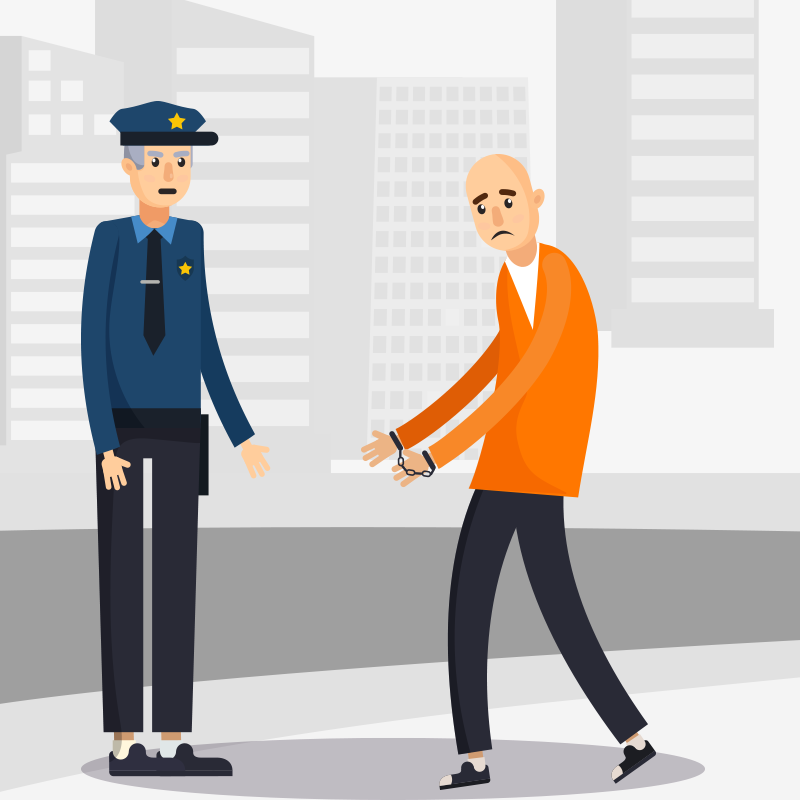What happens if you get caught with edibles in Minnesota? You may face criminal charges. A conviction could result in substantial fines, jail time, or both. Minnesota law classifies possession of fewer than 42.5 grams or around 1.5 ounces of marijuana as a petty misdemeanor. This law does not apply to THC edibles and other forms of processed cannabis like dabs, hash, wax, and butter. Consequently, possession of fewer than 0.25 grams or a single dose of edibles attracts a gross misdemeanor charge. Possession of more than 0.25 grams or multiple dosage units of edibles attracts a felony charge.

Table of Contents
Are Edibles Legal in Minnesota?
If you are a registered medical marijuana user, you might be wondering, “are edibles illegal in Minnesota if they’re for medical use”? Marijuana-infused edibles are illegal in Minnesota at the moment. The permitted forms of medical marijuana include pills, topical powdered mixtures, liquids, vapor oils, and dissolvable lozenges.
In August 2022, Minnesota’s medical cannabis program will introduce THC edibles – like chews and gummies. Once edibles become available, registered users of medical marijuana in Minnesota may purchase a “30-day supply” of edibles once. The cannabis edibles will be available at licensed medical marijuana dispensaries.
Note that Minnesota Marijuana laws consider marijuana a Schedule I controlled substance. As such, recreational use of marijuana is illegal.
Side Effects of Edibles
Users can easily overconsume THC, exposing them to severe side effects. The reason is that the body takes longer to process edibles than smoking. Muscle spasms, low blood pressure, nausea, and impaired attention are some examples of side effects of overconsumption of THC edibles.
Edibles may also contain other ingredients that might trigger allergic reactions in users. Milk and butter are common ingredients used in THC edibles. A person with lactose intolerance may react to such edibles.
Minnesota THC Laws
Recent reforms to the Minnesota THC laws introduce edibles as a medical marijuana delivery option. The new option addresses the needs of registered users who find other allowed forms of medical marijuana intolerable, expensive, and inaccessible. Registered users will have to wait until August 2022, when the law takes effect.
Minnesota’s lawmakers are also considering a marijuana reform bill, which would decriminalize THC edibles and oils. The proposed bill seeks to reform the 1970s Minnesota law that decriminalized small quantities of cannabis.
The current law – in effect until August 2022 – makes it a petty misdemeanor to possess less than 42.5 grams or 1.5 ounces of cannabis leaf or buds. According to DFL-Minneapolis Representative Aisha Gomez, that law doesn’t incorporate other forms of marijuana like edibles or oils. Possession of any amount of THC edibles or oils is a crime in Minnesota.
Rep. Gomez says that cannabis-infused edibles, oils, and other concentrates have surpassed the leaf or buds in popularity. More people are using these products daily. Some are vaping them, while others are eating them as edibles and tinctures.
Gomez’s proposed reform bill seeks to decriminalize edibles and oils. Under the bill, any amounts below 8 grams get considered a petty misdemeanor, not a felony. According to Gomez, 8 grams of THC is less than 42.5 grams of a marijuana leaf.
Maple Lake Representative Marion O’Neill (R) raised concerns regarding the THC weight. She argued that the weight might conceal the actual THC potent level.
Penalties for Possession of Edibles in Minnesota

If you are arrested for possession of THC edibles in Minnesota, you face a fifth-degree drug possession charge. This charge will be a gross misdemeanor or felony, depending on the circumstances.
You may face a gross misdemeanor if you were arrested with less than 0.25 grams or a single-dosage unit of THC edibles, and you are a first-time offender. You may face a felony drug possession charge if you were caught with over 0.25 grams or several dosage units of THC edibles.
The maximum penalty for a gross misdemeanor conviction is jail time of up to one year and up to $3,000 in fines. A felony conviction for THC edibles possession will lead to a maximum of a 5-year jail time and up to $10,000 in fines.
A drug possession conviction may carry other hidden consequences in addition to jail time and fines. The conviction may, for instance, take away your right to vote, own a firearm, or travel outside Minnesota. Renting a house, securing a job, and qualifying for student loans may also become challenging.
How Can a Drug Crime Lawyer Help You in Minnesota?
Having an aggressive drug crime lawyer on your side from the beginning can help you get a favorable outcome in your drug possession case. A lawyer who’s well conversant with Minnesota laws can examine your case and discuss your charges, possible penalties, and available legal options.
Drug possession cases often involve multiple legal issues, including controlled purchases, vehicle stops, search warrants, and tests from recognized scientific labs. Your lawyer can review these legal issues and other specifics of your case to establish whether police officers violated your rights during the arrest, questioning, and evidence discovery.
Your attorney may decide to bring a private investigator on board to investigate some charges leveled against you. The investigator, for instance, may help find a witness to testify in your favor or corroborate your alibi.
A good drug crime defense lawyer presents evidence correctly. The lawyer knows how to frame questions properly and which ones to ask a witness. The lawyer also has the right strategies to defend a specific line of questioning.
Negotiating a plea deal is sometimes the best option for your drug crime case. This is especially true when clear evidence and suspect conditions exist in your case. Your lawyer can skillfully negotiate with the prosecution to get the charges or penalties reduced. A brilliant lawyer knows when to keep negotiating and when to move to trial.





